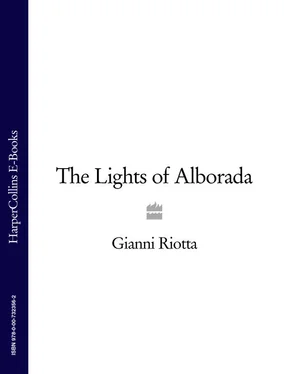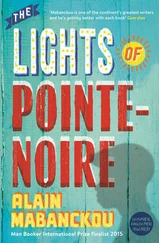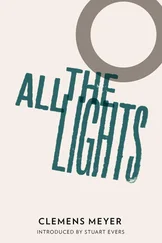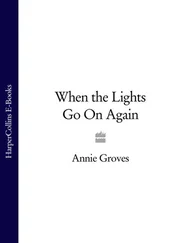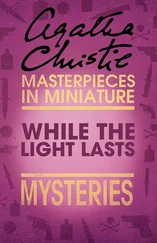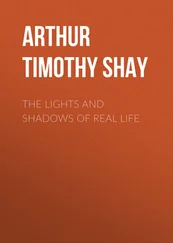I didn't see the hand that drew its fingers across my leg as though drawing a tattoo. I kept my eyes on the sulphurous road, and felt the blood stirring inside my pants. But before the sense of excitement, which ran free and strong, I felt tenderness and compassion for my skin, recruited in Rome, battered by sea-storms, tanned in two deserts, leathery skin that knew the corrosive sand and the tough showers and the hasty thread of the Venetian nurse who sewed me up. ‘Christ alive, it's just a scratch, the poor guy in the bed next to you hasn't got legs to mend.’
And now, just below the white marks of that scar, sharply drawn by British shrapnel, like the footprints of a steel-footed sparrow, the girl's hand lingered. Almost imperceptibly she tightened her grip, and the shiver that followed did more to open me up than the sudden explosion of a grenade, a cry for help, a barked command. It pierced my resignation as a prisoner, it cut through the pain at my abandonment. However my hunting season might have gone, I still had a heart. Was that good or bad news?
Recalling her now, the girl, H.S., that was her name, seems liquid to me. At night, when the cold mistral splits the shutters of my bedroom and wakes me, I find myself thinking about her once again. Her diaphanous weightlessness fills my empty mind. I run through our days, few in number but crucial in our lives, and H.S. ethereally expands, like a piece of origami, the beautiful swan with the sinuous neck that she folded out of paper after making love. Like the few poetic words she prayed to her Buddha. In the pockets of her silk trousers she had a little Buddha of Happiness, who crossed the world smiling, his bag of suffering held tightly on his back. ‘He gives me my courage,’ she said.
We made love immediately after our meeting in the coffee shop. There were two rough rooms upstairs, and the lieutenant, with a wink, had gone ahead of me. She took me by the hand, and when she did so her hand didn't seem to touch me.
I wasn't a great Casanova, and twelve hundred nights of war had done nothing to sharpen my skills as a seducer. I lay on the little bed, a basic affair like the one on which I slept next to Ferrucci, and kept my hands behind the back of my neck. She opened my khaki shirt, one button at a time, and exposed my chest. I was lean, God knows, muscular, smooth, strengthened by privations and effort, my body was like a weapon. H.S. took off her clothes with a single prima donna movement, a tunic that weighed no more than a scarf, and was suddenly naked on top of me. I can't recall, scouring my memory, whether she rested on my crotch or my thighs, or whether she floated around me like a hummingbird. She rose to lick me and – I had to do something, or at least that was what they had told me on the Island – I sought the buckle of my belt with trembling hands.
‘Let me,’ said H.S., and unhooked it by herself. She moved her body as though merely rearranging her hair, a brief shadowy movement and I was inside her.
They still come to me on nights when the mistral blows. Why are memories so weightless? Even the tragic ones, even the painful ones? If I think of Bardia, when I fell into the hands of the Australians, at the age of twenty, all I hear is the machine-gunner whimpering, ‘Do we surrender, Manè? Do we surrender or do I fire, Manè?’ I don't remember when I had fired all the rounds in the magazine, in accordance with military regulations, ‘Fire to the last round before surrendering’, and I really did fire the last cartridge, yes, sir, I, the student of the socialist Professor Barbaroux, fired until the barrel of the Breda was red hot and we were out of ammunition. I remember none of that. I only remember the silence, what could be sweeter than silence, what could be harder to reassemble in the memory? And my gunner lying face down on the sand, arms open, motionless and cruciform. I saw the sand thrown up by gusts of wind, one, two, three, and I didn't see the enemy. Faceless and nameless: they would acquire faces and names only in prison. Not in war, just being the enemy was enough, they fired and we fired back. Finally the outlines come, the target shooting – mortal targets – assumes the guise of humanity, they strip us of our watches and pile us up in open railway carriages, so that the indigenous people can spit on us, the only chance they will ever get to humiliate a white man.
So: to remember those moments I have to make an effort of reason, I have to use thought as a compass. If I close my eyes and look out the window on to the unlit gulf, both within and without, and then open my lids, nothing changes, the darkness enfolds me. Of the girl, H.S., I am aware of the lightness with which she unhooked my belt, the sparrow's flutter with which she settled on my chest, and the lightness with which she made love to me. Of my capture, I see sand flying suddenly from the crest of a dune, then again, every second, and the machine-gunner embracing Mother Earth and praying as he awaits a Mediterranean divinity, while the enemy advances cautiously and victoriously towards us, certain prey in the desert.
We are all prey to memories, which we cannot alter, and which wait for us like bookkeepers, precise collectors of debits and credits. Are they worth more than real events? No, what matters is the story we forge for ourselves in our memories. At Camp 1 my gunner – ‘Do I shoot, Manè? Do I shoot?’ – never spoke to me again, he didn't want to poison our battling past with our captive present. Ciao, and that's that. So I can't tell you if the girl was as graceful as I remember, or whether I only perceived her carnality, her taut skin, her slanting oriental eyes. I was sure, and I still am, that H.S. was the most beautiful creature that the Lord God had ever put on earth. The privilege of finding her and the perennial bitterness at losing her will be the last memories to abandon me in the few days I still have left. In 1944 I didn't think that way, I was young. And yet when the girl circled about me, my body tensed and I thought, ‘You're happy now, remember, remember, remember.’
You might think it wise for a boy to be so precisely aware of his states of mind of sorrow and happiness. But I bitterly regret it. It's true: rare among human beings, I possess a precise memory of happiness, a lucid awareness of having perceived vivid joy. But searing within me I also feel the regret, the emptiness that comes afterwards.
Perhaps the girl was carnal, her womanly ardour certainly was. And perhaps I was innocent, my eccentric escape for love certainly was. That lightness means everything to me: it is, and will remain, my life, the life of Giovanni Manes.
The next memory, a flash after her hands on my belt, is the mocking blond head of the lieutenant: ‘Still here? What a fuss you Italians make!’ And he starts singing Puccini, to my horror, in the purest Italian: ‘Oh! Sweet kisses, oh languid caresses, and I, trembling, unveiled those beautiful forms …’
We paid the girls. I hadn't even asked her name, if weightlessness has a name. We took a bus at six o'clock, perhaps a day later we would make it to Nashville and from there to Baltimore, Washington and New York. The sun was high, the wooden footpaths deserted. The lieutenant and I the only ones who walked them, in our light shoes, in silence, drained by love after so much solitude. My head was bowed in confusion when I felt a gentle touch on my arm. A dark-coloured car was coming towards us. The lieutenant pushed me maternally into a grocer's shop full of dried-up vegetables. He picked up the bowl that was used to weigh the green, green peas, and plunged it into the big brimming sack. As soon as the car had passed he led me to the next shop, through the door and into the post office. ‘They're after us,’ he said gently.
‘But aren't your documents in order?’
Читать дальше
